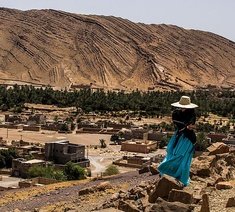Featured Quizzes
User Quizzes
Create Quiz
Data and Charts
Badges and Games
About JetPunk
JetPunk Shop
Dark Mode

All Major Afroasiatic Languages (with a map)
Can you name all the Afroasiatic languages/dialects on the map below? Only language with more than 500,000 people are included.
All L1 speaker data taken from each language's Wikipedia page, some figures may be disputable
Not including the controversial Omotic language family.
Rate:
Last updated: January 17, 2022
You have not attempted this quiz yet.
More quiz info >>
| First submitted | January 17, 2022 |
| Times taken | 4,996 |
| Average score | 35.7% |
| Rating | 4.84 | Report this quiz | Report |
5:00
Enter language here
0
/ 28 guessed
Time Used
00:00
Best Time
00:00
The quiz is paused. You have remaining.
Scoring
You scored / = %
This beats or equals
% of test takers
also scored 100%
The average score is
Your high score is
Your fastest time is
Keep scrolling down for answers and more stats ...
|
|
||||||||||||||||||||||||||||||||||||||||||||||||||||||||||||||||||||||||||||||||||||||||||||||||||||||||||||||||||||||||||||||||||||||||||||||||||||||||||||||||||||||||||||||||||||||||||||||||||||||||||||||||||||||||||||||||||||||||||||||||||
New and Popular
Save Your Progress
All Languages by Language Family
Quiz series by Jiaozira
...
Copyright H Brothers Inc, 2008–2024
Contact Us | Go To Top | View Mobile Site















This one is kind of similar to another quiz I made on this facinating family, although the older quiz has some glaring errors. I would have included more languages with less than 500k L1 speakers, however the list becomes hard to make quickly due to conflicting figures.
I hope my translations are relatively okay. They are very general, and unfortunately I do not provide specifics on how certain words are inflicted and so on and so forth. Also Somali was mind-blowing, so I am skeptical of my colour-coding. I got to include some 'dialects' this time, although the concept of 'dialects' is more of a political thing than a linguistic one, and I only make the distinction for quizzes.
A lot of the space on the map in uninhabited. Therefore, some language-areas may follow national (straight-line) borders or appear larger in area than they actually are.
I accept each dialect cluster as an answer, although the names of specific languages/dialects are type-ins. Maybe one day I'll do a quiz solely on the varieties of Arabic :)
It is an interesting thought, whether this could have happened in Latin Europe or North India for example. It's not a perfect model in the Arab countries either, as many Arabs today struggle with MSA (which is just called FusHa in the Arab World).
I guess this is why so many countries (especially diverse ones) go with English as the lingua franca. It is seen as a politcally neutral choice.
".מחר, אני אלך לראות את השוק היפה" Hebrew is written right-to-left so there's no dot before מחר
And after the verb there's supposed to be "את', which signifies that the object the verb is referring to is unique. "לראות את השוק" is to "See the Market", "לראות שוק" is to "See a Market".
"לראות השוק" doesn't make grammatical sense.
I will fix the Hebrew. It was a minor nightmare getting JetPunk text boxes to cooperate with the writing direction, I didn't notice the dot had swapped places haha.
Could you please give me a Romanisation of the (correct) phrase, if possible? I did my best above by using a Hebrew dictionary but I am not super confident with my work.
I appreciate the translation. I had to use Google Translate for each language except for Arabic so there will be mistakes.. :(
In Arabic there are a number of fricative sounds and pharyngealised sounds (which sound like a hard T, D, S, Z sound). Therefore 3, 7 and 5 (especially in Egypt) are commonly used to replace these sounds, and capital letters show the pharyngealised (hard) sounds.
This way of writing is called Arabic chat alphabet and it has become quite standardised. However, it is still informal and so I didn't use it for the Modern Standard Arabic (elegant) Romanisation.